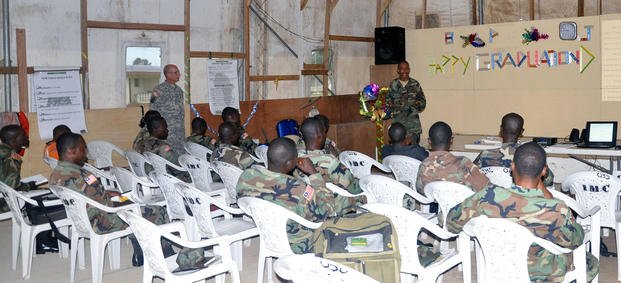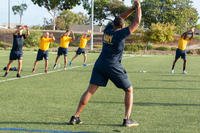Here is a great email that is getting more common these days. People are seeking new employment and coping with stress more than ever:
Stew - I have been in the financial business since I got out of college and always regretted that I never served in some capacity (military, police, firefighter, EMT). Well, I am no longer working, thanks to the economy, and now, at 30, [am] starting to think more about joining the military or police force. Where do I start?
Sorry to hear about the job loss. I know there are a few million of you out there seeking employment, as well as young high school and college graduates in the same market. Dealing with the stress of losing a job is not much different than going through a grieving process. You know: shock, denial, anger, resistance, sadness and acceptance. My recommendation is to get over the job loss quickly and start exercising to relieve the stress. You do not need to skip the above stages of loss, but speeding the process is helpful. Here is a free plan to help with weight loss and building good habits if you have not done anything in a while.
45-Day Plan (PDF): A great plan for weight loss, basic fitness and health habits.
And a stretching/core strength/lower-back and stomach plan that will help with stiff joints of the torso and lower extremities:
Lower-Back Plan (PDF): This is the easy way to reduce stress; stretch and work it out lightly.
Do not be embarrassed by getting laid off. Think of it as a new beginning. These days, the average person will work at four or five jobs before retiring -- some even more. Find something you like to do or always have dreamed about doing, chase it down and communicate with your family and friends regarding your situation and future options. Having support from people closest to you is helpful as well.
Job opportunities
Military, National Guard, Reserves and federal law enforcement agencies still are hiring at an above-average pace. Some local and metropolitan fire and police forces are slowing down academy classes because of budget shortfalls, but they always need replacements for retiring public servants, so see what is in your city, county and state that is available. All of these require some form of fitness training so get started running and doing calisthenics like push-ups, sit-ups and pull-ups. Check out the Military.com job board for possible leads and networking.
No need for a gym
Since I have been out of the military (nearly 10 years now), I never have joined a gym. No need to spend the extra money when you can run outdoors, find a pull-up bar or build your own. I use playgrounds for pull-ups, high school tracks, community center pools and floor space for some dumbbell weights and calisthenics. Check out the article "Getting Fit on a Budget" for more ideas.
Get some education
This may be the time to go to college if you can find scholarships, loans or use the GI Bill if you have it. Get some training in a field of your choosing, and more than likely, you can use the school's gym and pool facilities while a student for free.
Regardless, life is stressful, no matter if you are in the civilian sector or serving your country in any capacity. Dealing with that stress requires effort. Otherwise, you will pay for it in the long run with more illness, lower energy levels and a disrupted life. Other than exercise and relaxation, you need a healthy diet and sleep, too.
Diet
Foods rich in antioxidants like many fruits and vegetables are your best bet for snack foods and should make up a larger percentage of your overall meal preparation. Limit foods high in sugar and drinks high in caffeine in order to have a more relaxing evening before sleeping.
Sleep
People who exercise actually sleep better than those who do not. Some people with insomnia also have high levels of stress hormones in their bloodstream when trying to fall asleep. But regardless of diet and exercise, if you are not getting enough sleep or rest, you will not handle stress very well. Check out "The Importance of Sleep" for more information.
Stew Smith is a former Navy SEAL and fitness author certified as a Strength and Conditioning Specialist (CSCS) with the National Strength and Conditioning Association. Visit his Fitness eBook store if you’re looking to start a workout program to create a healthy lifestyle. Send your fitness questions to stew@stewsmith.com.
Want to Learn More About Military Life?
Whether you're thinking of joining the military, looking for fitness and basic training tips, or keeping up with military life and benefits, Military.com has you covered. Subscribe to Military.com to have military news, updates and resources delivered directly to your inbox.




















